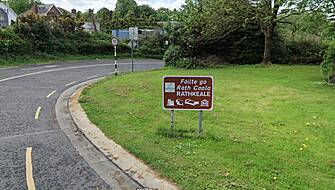Another wave of legal warnings have been delivered in person, by post, and by email to individuals across Ireland involved in providing illegal access to premium TV content.
The cease-and-desist notices instruct those running the services to immediately cease all illegal streaming activity otherwise risk facing the consequences, including criminal prosecution.
They were issued to addresses within the counties of Mayo, Monaghan, Galway, Louth, Dublin, Cork, and Laois between 7th and 18th August.
FACT has been working in partnership with broadcasters and law enforcement to deliver this latest action. The first wave occurred across Ireland in March, with a number of illegal streaming services taken down and legal proceedings brought against individuals.
In response to the first wave, one of the individuals who was initially targeted has spoken about his regret. Sean, a former IPTV seller from the West of Ireland said:
“I didn’t think that what I was doing was a serious offence. I didn’t think that anyone ever paid attention to copyright crime, let alone investigate and track people down for it.
“I was shocked when they knocked at my door and now regret what I’ve done. It’s caused me so much worry, and I wish I’d never got involved in the first place – it isn’t worth the stress.”
The legal notices have already seen disruption with those targeted taking down their sites and advertising. This interference to their illegal operations is likely to continue.
In May, five men were sentenced in total to just over 30 years in prison in the UK for their part in running three illegal streaming services – Flawless, Shared VPS and Optimal.
The ringleader of the operation, Mark Gould, was sentenced to 11 years, which is a significant custodial sentence for these types of offences (fraud, money-laundering and contempt of court)
The case, which was a private criminal prosecution, was brought by the Premier League and supported by Sky and others.
In other steps to tackle piracy, the Premier League was granted a new, enhanced blocking order in Ireland, while Sky was granted a similar order, designed to protect its sports and entertainment content in the UK.







